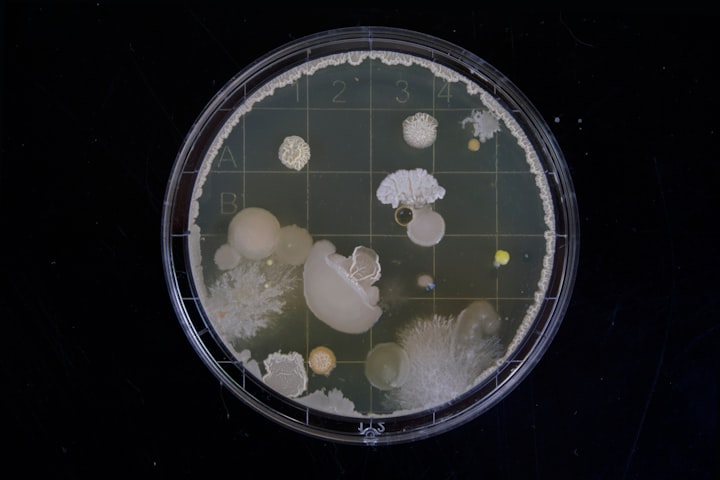The Science of Happiness: How Gratitude and Acts of Kindness Boost Well-being
Unleashing the Power of Gratitude and Kindness to Cultivate Lasting Happiness and Enhance Overall Well-being

Introduction:
In today's fast-paced and often stressful world, finding happiness and maintaining a sense of well-being has become a priority for many individuals. While happiness may seem elusive, scientific research has shed light on the factors that contribute to our overall well-being. Two key elements that have been extensively studied and proven to boost happiness are gratitude and acts of kindness. In this article, we will explore the science behind gratitude and acts of kindness and how they can significantly enhance our well-being.
Gratitude and Well-being:
Gratitude is the practice of acknowledging and appreciating the positive aspects of our lives. It involves recognizing the good things we have and expressing thanks for them. Numerous studies have shown a strong correlation between gratitude and well-being. When we cultivate gratitude, we shift our focus from what is lacking in our lives to what we already have, leading to increased feelings of contentment and happiness.
Research conducted by psychologists Robert Emmons and Michael McCullough found that individuals who regularly practiced gratitude experienced higher levels of positive emotions, such as joy, enthusiasm, and optimism. They also reported fewer symptoms of depression and anxiety. Moreover, gratitude has been linked to improved physical health, better sleep quality, and increased resilience in the face of adversity.
The benefits of gratitude extend beyond the individual. A study published in the Journal of Positive Psychology revealed that expressing gratitude towards others not only enhances our own well-being but also strengthens our relationships. When we express gratitude to someone, it fosters a sense of connection and deepens our social bonds. This, in turn, leads to increased feelings of happiness and satisfaction in our interpersonal relationships.
Acts of Kindness and Well-being:
Acts of kindness, both big and small, have a profound impact on our well-being. Engaging in acts of kindness involves selflessly helping others without expecting anything in return. Research has consistently shown that acts of kindness not only benefit the recipient but also significantly boost the well-being of the giver.
When we engage in acts of kindness, our brain releases feel-good chemicals such as dopamine and oxytocin, which are associated with feelings of happiness and well-being. A study conducted by researchers at the University of British Columbia found that individuals who performed acts of kindness experienced a significant increase in happiness levels. This effect was even more pronounced when the acts of kindness were performed regularly.
Moreover, acts of kindness have been shown to reduce stress levels. When we engage in acts of kindness, our body releases endorphins, which act as natural painkillers and stress reducers. This not only improves our mood but also enhances our overall physical and mental well-being.
The benefits of acts of kindness extend beyond the immediate impact on our well-being. Research has shown that engaging in acts of kindness can create a ripple effect, inspiring others to also engage in kind acts. This creates a positive feedback loop, where kindness spreads and contributes to a more compassionate and supportive society.
Practical Strategies to Cultivate Gratitude and Engage in Acts of Kindness:
Now that we understand the science behind gratitude and acts of kindness, let's explore some practical strategies to incorporate these practices into our daily lives:
1. Gratitude Journaling: Set aside a few minutes each day to write down three things you are grateful for. This simple practice can help shift your focus towards the positive aspects of your life.
2. Expressing Gratitude: Take the time to express gratitude towards others. Write a thank-you note, send a heartfelt message, or simply say "thank you" to someone who has made a positive impact on your life.
3. Random Acts of Kindness: Look for opportunities to perform random acts of kindness. It could be as simple as holding the door for someone, offering a compliment, or volunteering your time for a charitable cause.
4. Cultivate Empathy: Practice putting yourself in someone else's shoes and try to understand their perspective. This can help foster empathy and compassion, leading to more acts of kindness.
Conclusion:
In conclusion, the science of happiness has revealed that gratitude and acts of kindness play a significant role in boosting our well-being. By cultivating gratitude and engaging in acts of kindness, we can experience increased levels of happiness, improved physical and mental health, and stronger social connections. Incorporating these practices into our daily lives can have a profound impact not only on our own well-being but also on the well-being of those around us. So, let us embrace gratitude and kindness as powerful tools to enhance our overall happiness and create a more harmonious world.
About the Creator
Sebastian Reed
Dedicated to empowering individuals on their journey to optimal health. Sharing practical fitness tips, nutritious ideas, and motivational insights. Let's cultivate a vibrant life together! Join me for inspiration and transformation.






Comments
There are no comments for this story
Be the first to respond and start the conversation.